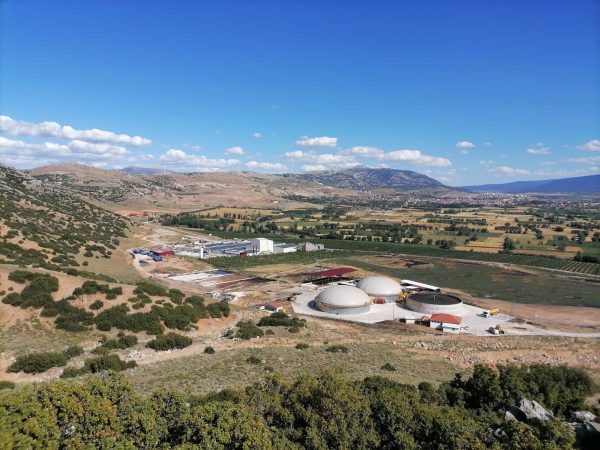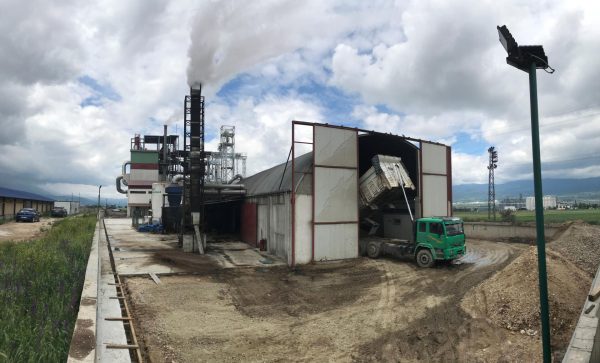Türkiye
This project phase has been completed.
Türkiye looks to biomass to achieve ‘green growth’
Türkiye ratified the Paris Climate Agreement in October 2021. Today, the country relies heavily on imported fossil fuels to meet its domestic energy demand. But, by embracing the massive growth of its renewable energy market – including biomass – Türkiye can achieve its long-term sustainability and energy security goals, while also meeting its climate commitments.
Why is renewable energy important for Türkiye's industrial sector?
Turkey has one of the world’s fastest growing economies in the world and ranks second in natural gas and electricity demand growth after China. Projections show that Turkey’s energy demand will continue to rise. Reducing external energy dependency in the electricity market with renewables is a relatively common approach in the global energy market. But, it is challenging when it comes to replacing fossil fuel use in the energy market with renewables. Biomass however offers a unique opportunity from other renewable energy sources as it can play a fundamental role in producing both electricity and heat (and even cooling in tri-generation systems) at the same time, contributing to sustainability measures in multiple dimensions.
Turkey’s energy consumption has grown rapidly due to industrialization and economic development, urbanization and the country’s growing population. The impacts of climate change have also become more pronounced in recent years. Transitioning to a more secure and sustainable energy mix is critical to managing the demands of Turkey’s growing population and the impacts on people due to climate change. The scaling up of Turkey’s industrial bioenergy sector, along with the introduction and enforcement of regulations for more sustainable residue management on agricultural land, will also help to reduce local air pollution and related social health impacts.
Turkey ranks among the top 20 emitters in the world. Accelerated industrial energy efficiency uptake combined with a boost in bioenergy generation has the potential to reverse Turkey’s growing trend of increasing greenhouse gas (GHG) emissions. According to some studies it is possible for Turkey to meet one-third of its annual energy demand with biomass. The scaling up of Turkey’s industrial bioenergy sector, along with the introduction and enforcement of regulations for more sustainable residue management on agricultural land, will help to reduce air pollution and related social health impacts, as well as to prevent stubble burning and improve biodiversity.
Creating a market for biomass and renewable energy in Türkiye
Türkiye’s untapped biomass sector presents huge opportunities to generate heat and electricity from agricultural waste. Although these opportunities appear attractive, there remains a lot of uncertainty in terms of costs, supply and aggregation, technology and scale.
UNIDO’s ongoing project in cooperation with the Ministry of Agriculture and Forestry demonstrates the benefits of using agricultural residues, which have no other purpose, in the production of energy. Farmers typically burn these residues, emitting harmful pollutants into the atmosphere. If left in the fields after harvest, these residues, such as cotton stalks, can also host harmful parasites. But by fostering and promoting an environmentally sound bioenergy industry, Türkiye can decrease its dependence on imported coal, oil and natural gas, and also mitigate harmful greenhouse gas emissions.
In addition to showcasing modern and environmentally safe bioenergy technologies and processes, the project is working to simultaneously promote the benefits of renewable energy through awareness raising and the demonstration of various technology applications in selected Small and Medium Enterprise (SME) sub-sectors. Particular focus will be given to the potential of waste heat recovery in industrial plants.
Key service areas
Training and know-how
In addition to showcasing modern bioenergy technologies, UNIDO is working to simultaneously promote the benefits of industrial energy efficiency through awareness raising and the demonstration of various energy efficiency technology applications in selected Small and Medium Enterprise (SME) sub-sectors. For example, the project supported a cooperation of local businesses and farm owners to utilize the broiler chicken litter in their facilities to generate heat and electricity. Through regular training initiatives and workshops the project expects to deliver a critical mass of energy efficiency capacity and biomass knowhow for both industry stakeholders and policymakers. The project also emphasizes gender balance in each step of energy generation and displays gender equality planning for all its awareness raising and training.
Advocacy and policy support
Türkiye’s national energy strategy aims to make the country’s energy supply more secure through diversification. The generation of more energy resources that are domestically sourced and also renewable is essential to achieving this goal. UNIDO is working with the government to strengthen existing incentives, which are designed to accelerate the use of biomass as an energy resource. This includes advice and support for the development of sustainable production, conversion and efficient utilization of bioenergy in line with the Renewable Energy Action Plan of Türkiye.
Financing solutions
Although a number of renewable energy applications using organic waste have successfully obtained investment, Turkish investors are typically reluctant to finance biomass and/or industrial energy efficiency initiatives due to perceived risks. To overcome this, UNIDO is trialling and encouraging a number of financing mechanisms. This includes a dedicated credit support for selected projects sponsors wanting to experiment with the ESCO (energy service company) model. Additional measures, such as investment grants and tax breaks are also under consideration.
Impact
billion metric tons of CO2 mitigated through relevant direct and indirect project interventions.
bioenergy investments are supported financially (5 supply chains and 6 energy plants), and 7 academic works in bioenergy are partially granted (5 masters and 2 phds).
engineers, technicians, government and financial stakeholders trained in bioenergy technology and related applications.
thousand MWh energy saved through the replacement of industrial motors.






